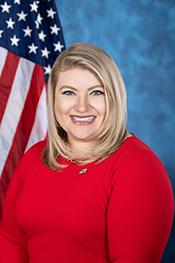0
0
0
Defund NPR Act
3/23/2025, 11:19 AM
Summary of Bill HR 1595
Bill 119 HR 1595, also known as the "Defund NPR Act," aims to prohibit Federal funding for National Public Radio (NPR) and other public broadcasting entities. The bill was introduced in the House of Representatives on March 8, 2019 by Representative Doug Lamborn from Colorado.
The main purpose of the bill is to eliminate the use of taxpayer dollars to support NPR, arguing that the organization has a liberal bias and does not represent the views of all Americans. The bill specifically targets funding from the Corporation for Public Broadcasting (CPB), which provides financial support to NPR and other public broadcasting entities.
Supporters of the bill argue that NPR should not receive government funding and should instead rely on private donations and sponsorships to sustain its operations. They believe that taxpayer dollars should not be used to support a media organization that they perceive as having a political agenda. Opponents of the bill argue that NPR provides valuable and unbiased news coverage and programming that serves the public interest. They believe that cutting off federal funding would harm NPR's ability to provide quality journalism and diverse perspectives to its audience. As of now, the bill has not been passed into law and is still under consideration in the House of Representatives. It has sparked a debate about the role of government funding in supporting public broadcasting and the importance of maintaining a free and independent press in the United States.
The main purpose of the bill is to eliminate the use of taxpayer dollars to support NPR, arguing that the organization has a liberal bias and does not represent the views of all Americans. The bill specifically targets funding from the Corporation for Public Broadcasting (CPB), which provides financial support to NPR and other public broadcasting entities.
Supporters of the bill argue that NPR should not receive government funding and should instead rely on private donations and sponsorships to sustain its operations. They believe that taxpayer dollars should not be used to support a media organization that they perceive as having a political agenda. Opponents of the bill argue that NPR provides valuable and unbiased news coverage and programming that serves the public interest. They believe that cutting off federal funding would harm NPR's ability to provide quality journalism and diverse perspectives to its audience. As of now, the bill has not been passed into law and is still under consideration in the House of Representatives. It has sparked a debate about the role of government funding in supporting public broadcasting and the importance of maintaining a free and independent press in the United States.
Congressional Summary of HR 1595
Defund NPR Act
This bill prohibits federal funding of National Public Radio (NPR) or any successor organization. The prohibition includes the payment of dues to or the purchase of programming from NPR by a public broadcast station using federal funds.
Read the Full Bill
Current Status of Bill HR 1595
Bill HR 1595 is currently in the status of Bill Introduced since February 26, 2025. Bill HR 1595 was introduced during Congress 119 and was introduced to the House on February 26, 2025. Bill HR 1595's most recent activity was Referred to the House Committee on Energy and Commerce. as of February 26, 2025
Bipartisan Support of Bill HR 1595
Total Number of Sponsors
3Democrat Sponsors
0Republican Sponsors
3Unaffiliated Sponsors
0Total Number of Cosponsors
0Democrat Cosponsors
0Republican Cosponsors
0Unaffiliated Cosponsors
0Policy Area and Potential Impact of Bill HR 1595
Primary Policy Focus
Science, Technology, CommunicationsAlternate Title(s) of Bill HR 1595
To prohibit Federal funding for National Public Radio, and for other purposes.
To prohibit Federal funding for National Public Radio, and for other purposes.
Comments

Lila Merritt
507
8 months ago
I can't believe this bill is finally happening! It's about time they stop funding it. I'm so tired of hearing their biased news. How will this affect local stations though? #DefundNPRAct
Sponsors and Cosponsors of HR 1595
Latest Bills
ESTUARIES Act
Bill HR 3962December 13, 2025
Federal Maritime Commission Reauthorization Act of 2025
Bill HR 4183December 13, 2025
National Defense Authorization Act for Fiscal Year 2026
Bill S 1071December 13, 2025
Enduring Justice for Victims of Trafficking Act
Bill S 2584December 13, 2025
Technical Corrections to the Northwestern New Mexico Rural Water Projects Act, Taos Pueblo Indian Water Rights Settlement Act, and Aamodt Litigation Settlement Act
Bill S 640December 13, 2025
Incentivizing New Ventures and Economic Strength Through Capital Formation Act of 2025
Bill HR 3383December 13, 2025
BOWOW Act of 2025
Bill HR 4638December 13, 2025
Northern Mariana Islands Small Business Access Act
Bill HR 3496December 13, 2025
Wildfire Risk Evaluation Act
Bill HR 3924December 13, 2025
Energy Choice Act
Bill HR 3699December 13, 2025
Defund NPR Act
Bill S 746March 23, 2025
